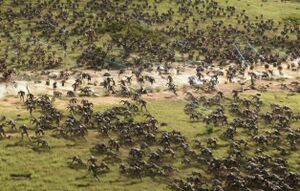War of Dusk and Dawn: Difference between revisions
No edit summary |
No edit summary |
||
| Line 25: | Line 25: | ||
| status = | | status = | ||
| combatants_header = | | combatants_header = | ||
| combatant1 = [[Embracing Dusk]] | | combatant1 = [[File:Amenria_flag.jpg|x20px]] [[Amenria]] <br> | ||
* [[Embracing Dusk]] | |||
* [[File:Starchild_Sorority_logo.png|x22px]] [[Starchild Sorority]] | * [[File:Starchild_Sorority_logo.png|x22px]] [[Starchild Sorority]] | ||
| combatant2 = [[File:Overseer_logo.png|x22px]] [[Argos]] | | combatant2 = [[File:Overseer_logo.png|x22px]] [[Argos|Rising Dawn]] | ||
| combatant3 = | | combatant3 = | ||
| commander1 = | | commander1 = | ||
Revision as of 04:24, 25 June 2023
This article is incomplete because it is pending further input from participants, or it is a work-in-progress by one author. Please comment on this article's talk page to share your input, comments and questions. Note: To contribute to this article, you may need to seek help from the author(s) of this page. |
| War of Dusk and Dawn | |||||||
|---|---|---|---|---|---|---|---|
 | |||||||
| |||||||
| Belligerents | |||||||
|
| |||||||
| Commanders and leaders | |||||||
|
| |||||||
The War of Dusk and Dawn was a notable conflict that occurred in R1 in the year 2043, resulting in the emergence of Orientia as an independent nation. This war involved intense battles between the forces led by Mugen and Tianshi, two prominent figures known for their extraordinary abilities.
The war had significant consequences, including widespread destruction and loss of life. It also played a role in the ratification of the Treaty of Jeddah, an international agreement aimed at regulating the activities of superheroes and awakened individuals.
Background
The roots of the war can be traced back to a political clash between two influential figures, Mugen and Tianshi, each espousing different ideologies and visions for the country. Mugen, dissatisfied with the existing monarchy and the concentration of power, emerged to sought to challenge the established order. In the early 2040s, he embarked on a mission to gather like-minded individuals who shared his republican aspirasions. Forming the Rising Dawn faction, Mugen worked covertly to build a rebel movement that aimed to challenge the authority of Emperor Tianshi.
Mugen's endeavors involved extensive travel, secret meetings, and the recruitment and training of passionate supporters who would aid in his movement. Operating discreetly, he established a complex network of safe houses, communication channels, and covert meeting points, providing rebel fighters with a secure environment to strategize and coordinate their efforts away from the royal authority. Mugen also smuggled weapons, provisions, and other vital supplies while evading the monarchy's surveillance.
In addition to material support, Mugen assumed the responsibility of training and preparing the rebels for the challenges they would encounter on the battlefield. Conducting secret training sessions in isolated islands throughout the pacific ocean, he imparted his knowledge of combat techniques, guerrilla warfare strategies, and tactical maneuvers to prepare the rebels.
However, Mugen's activities were not without risks. The monarchy's forces relentlessly pursued the rebels, necessitating Mugen's discretion and ability to evade capture. Emperor Tianshi, determined to expose the mastermind behind the uprising, employed various methods of investigations and mobilized his loyal forces, including the Starchild Sorority and Kirigakure Network. Through scrutiny of rebel activities, interrogation of captured rebels, and the use of informants, Tianshi sought to uncover Mugen's involvement.
The mounting tensions between Mugen's rebels and Tianshi's loyalist forces marked the onset of the war. In October 2042, violence erupted in the streets of Tokyo, Osaka, Taipei, Manila, and Guangzhou, as clashes between the two factions escalated in frequency and intensity. The struggle for control over the nation reached a tipping point, culminating in a full-scale confrontation between the rebel uprising and the entrenched monarchy.
The early stages of the war were characterized by guerilla tactics, covert networks, and clandestine operations. Mugen's rebels fought valiantly, utilizing their training and resourcefulness to challenge the well-established power structure. The conflict spread across the land, resulting in widespread disruption and upheaval.
Conflict
During the peak of the War of Dusk and Dawn in Amenria, an awe-inspiring spectacle unfolded as two influential figures, Mugen and Tianshi, engaged in a battle that had a profound impact on humanity. Their extraordinary abilities and unwavering determination turned the confrontation into a cataclysmic clash of immense proportions.
In the midst of the escalating conflict, in February 9, 2043, Mugen's rebel faction, the Rising Dawn, had gained considerable strength and support, and stormed Mutiara, challenging the dominance of the monarchy under Tianshi's rule. Both leaders had undergone remarkable transformations, harnessing latent powers that elevated them to a league beyond mortals.
The climactic showdown between Mugen and Tianshi unleashed an onslaught of unimaginable power, captivating the attention of all those caught in the turmoil. Both sides went as far as using their strongest form, with Tianshi transforming to his celestial form, and Mugen using all of the Heaven's stone's power. The impact of their clash was felt far and wide, with shockwaves reverberating across the land, toppling structures, and obliterating the surrounding environment.
For a period spanning several weeks, beginning on March 17th, 2043, and stretching until April 5th, the battle raged on relentlessly. Mugen and Tianshi pushed their bodies and powers to their limits, engaging in a ferocious exchange of blows and devastating attacks. Their epic confrontation traversed various landscapes, leaving a trail of destruction in its wake.
Cities and towns across the region became unwitting witnesses to the destructive force unleashed by the combatants. The conflict scarred the land, reducing vast expanses to rubble, engulfing forests in raging infernos, and causing mountains to crumble under the weight of their titanic clashes. The earth itself seemed to tremble beneath the magnitude of their power, as shockwaves rippled outward, shaking the foundations of cities such as Shanghai, Beijing, Guangzhou, and Chengdu.
Amidst the chaos and devastation, the battle evolved into a spectacle of cosmic proportions. Energies collided and erupted in dazzling displays of light and elemental fury, captivating the imagination of those who beheld it. The clash of Mugen and Tianshi became a symbolic representation of the deep-seated conflict between their opposing ideologies, further intensifying the gravity of their superhuman struggle.
As days turned into weeks, witnesses from both sides of the conflict recounted the prolonged exchange of devastating blows and displays of extraordinary power that stretched the limits of comprehension. Reports indicate that the battle continued to rage on sporadically from April 12th to April 28th, causing widespread destruction and leaving a lasting impact on the psyche of the nation.
Aftermath
During the height of the War of Dusk and Dawn, the clash between Mugen and Tianshi attracted the attention of awakened individuals from various parts of the world, including Sandman. Recognizing the escalating threat posed by the conflict, in June 2043, Sandman intervened in the midst of the chaos, playing a crucial role in bringing about a ceasefire and halting the destructive clash.
Understanding the urgent need for a peaceful resolution, Sandman, alongside other awakened individuals, facilitated negotiations between Mugen and Tianshi. These discussions culminated in the signing of the historic Treaty of Jeddah, a significant milestone in the war. The treaty, named after the capital city where the agreement was finalized in 17 July, 2043, and marked a turning point and set the stage for a new era on the region. As part of the truce, Orientia emerged as an independent entity, encompassing the Pacific Amenrian States, with the exclusion of Kyushu and Indonesia.
Following the conclusion of the conflict, the rebel faction known as the Rising Dawn underwent a profound transformation. Under the new name "Argos", the organization sought to unite supporters of republicanism from around the world under Mugen's leadership.
In the aftermath of the war, public sentiment regarding Mugen and Tianshi varied significantly, reflecting the complexity of the conflict and the ideologies at play. Some admired Mugen's defiance against the monarchy and his vision for a more egalitarian society, while others expressed reservations about the methods he employed to achieve his goals. Similarly, Tianshi garnered both support and criticism for his commitment to preserving the traditional monarchy and his efforts to maintain stability in Amenria.
The repercussions of the War of Dusk and Dawn reverberated not only in Amenria but also across the wider world. The conflict served as a catalyst for significant geopolitical shifts, ushering in a new era of independence and renewing focus on democratic values. The intervention of awakened individuals and the ratification of the Treaty of Jeddah symbolized the power of diplomacy and collaboration in resolving conflicts and forging a path towards a more harmonious future.

